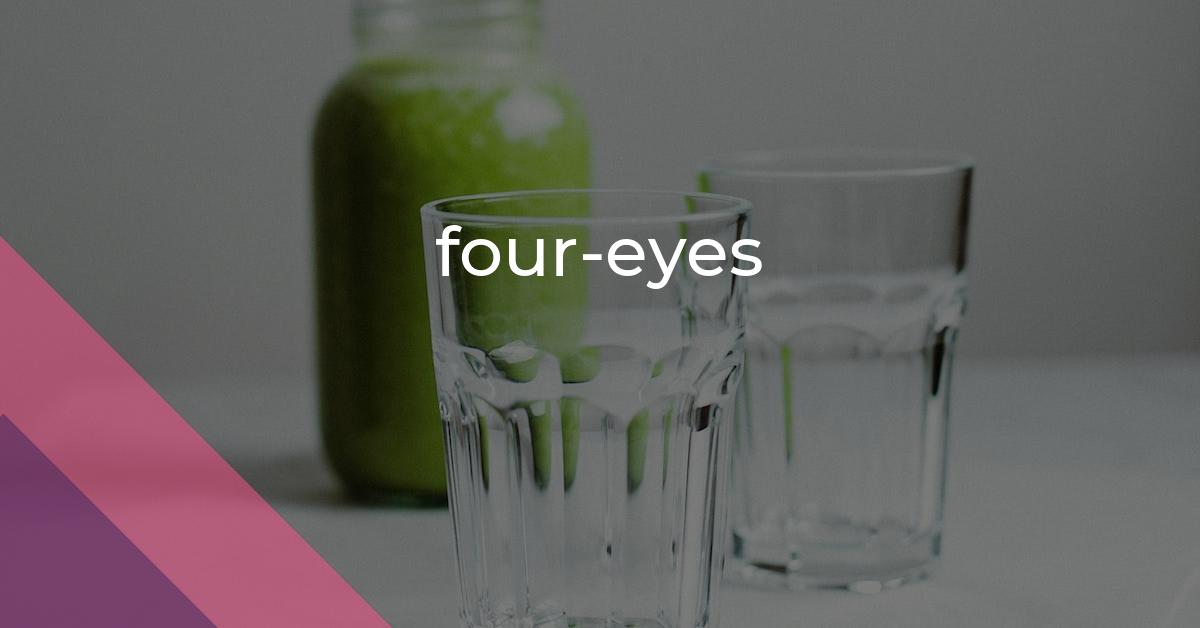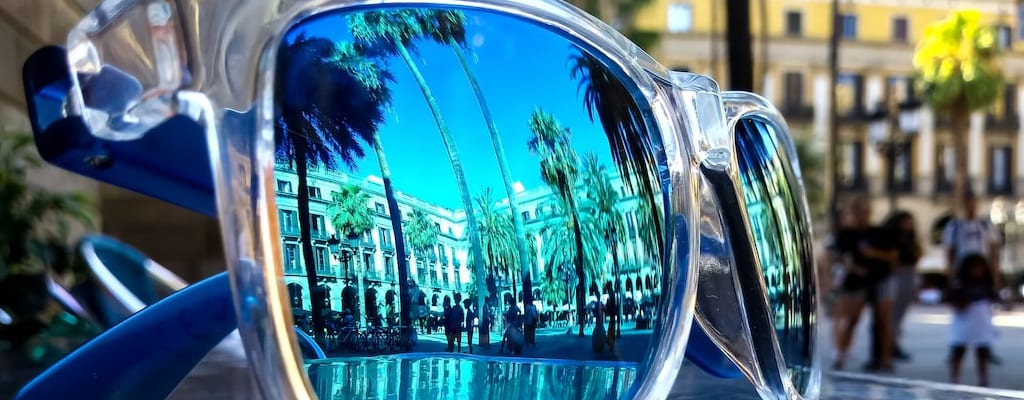four-eyes: Idiom Meaning and Origin
What does ‘four-eyes’ mean?
The idiom "four-eyes" refers to a person who wears glasses, often used as a teasing or mocking term to describe someone with poor eyesight.

Idiom Explorer
The idiom "lay eyes on" means to see or look at something. It implies that the person looking at something has a strong desire or interest in it.
The idiom "keep one's eyes peeled" means to stay alert and watchful, paying close attention to one's surroundings in order to notice any important or significant details or changes.
The idiom "keep an eye peeled" means to be vigilant or watchful, paying close attention to one's surroundings in order to notice any important or unusual developments.
The idiom "keep an eye on" means to regularly and closely monitor or watch someone or something, usually to ensure their safety or to prevent any problems. It implies being observant and vigilant in order to maintain control or stay informed about the situation.
The idiom "jug ears" refers to someone with large or protruding ears. It is used to describe someone's physical appearance, often in a derogatory or humorous manner.
The idiom "have eyes in the back of one's head" means to be exceptionally observant or aware of one's surroundings. It implies a heightened ability to notice things that others might miss.
The idiom "have eyes bigger than one's stomach" means to take or desire more than one can actually consume or handle.
An idiom meaning someone has an extremely unattractive or unpleasant face, often used to give a brutally honest description of someone's appearance.
Unmasking Visual Imprecision
The idiom "dollar-sign eyes" is used to describe someone who has a strong desire for money or is motivated by financial gain. It implies that the person's eyes light up like dollar signs, symbolizing their greed or materialistic nature. While not directly related to the "four-eyes" idiom, it is important to recognize the impact of stereotypes and judgments based on appearances, whether it be wearing glasses or being seen as greedy.
The idiom "eagle eye" refers to someone who has excellent vision or the ability to see clearly and perceive details that others may overlook. Unlike the negative connotation of the "four-eyes" idiom, "eagle eye" is a positive term that emphasizes visual acuity and attentiveness. It is crucial to challenge stereotypes and biases associated with wearing glasses and instead appreciate the unique qualities and strengths of individuals, whether or not they wear glasses.
The idiom "have eyes in the back of one's head" is a figurative expression to describe someone who seems to be aware of everything happening around them, even when they cannot physically see it. This idiom suggests exceptional attentiveness and awareness. While unrelated to the "four-eyes" idiom, it serves as a reminder that appearances can be deceiving, and it is essential to look beyond stereotypes and assumptions.
Changing societal perceptions and attitudes towards wearing glasses is an ongoing process. The derogatory nature of the "four-eyes" idiom has contributed to harmful stereotypes and biases towards individuals who wear glasses. However, as society becomes more aware and accepting, there is an increasing understanding of the importance and value of eyeglasses as a tool for vision correction.
Glasses are not a sign of weakness, inferiority, or a lack of attractiveness. They are a means of supporting visual health and enable individuals to see clearly and participate fully in their daily activities. Treating those who wear glasses with respect and without judgment is crucial in fostering an environment of inclusivity and acceptance.
It is important to remember that the negative stereotypes associated with wearing glasses, perpetuated by idioms like "four-eyes," can have real-world consequences. Individuals who wear glasses may face discrimination or ridicule, impacting their self-esteem and overall well-being. By challenging and dispelling these harmful idioms, we can create a more inclusive society that appreciates individuals for their skills, abilities, and unique characteristics.
The idiom "four-eyes" is a derogatory term that has been used historically to mock and belittle individuals who wear glasses. It is rooted in negative stereotypes and misconceptions about glasses and implies that wearing them is a sign of weakness or inferiority. However, as society evolves, it is essential to challenge and eliminate such harmful idioms in order to promote inclusivity, acceptance, and understanding for individuals of all appearances.
Example usage
Examples of how the idiom "four-eyes" can be used in a sentence:
- "When I was in school, some kids would tease others by calling them 'four-eyes' if they wore glasses."
- "My sister was thrilled when she got contact lenses and was no longer a 'four-eyes'."
- "He was proud of his new trendy glasses and didn't mind being called 'four-eyes' anymore."
The idiom "four-eyes" is typically used as a teasing or derogatory term to refer to someone who wears glasses. It implies that wearing glasses makes someone less cool or less socially accepted. The term is often associated with childhood or school settings where kids may use it to mock their peers who wear glasses. However, it can also be used in a more lighthearted or self-deprecating manner when the person being referred to embraces their glasses and is not bothered by the label.
More "Insult" idioms



